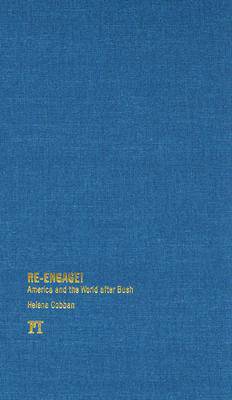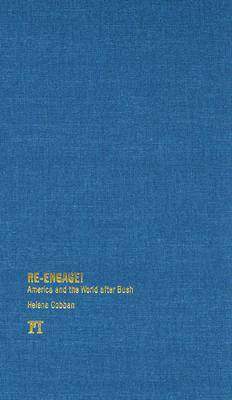
- Retrait gratuit dans votre magasin Club
- 7.000.000 titres dans notre catalogue
- Payer en toute sécurité
- Toujours un magasin près de chez vous
- Retrait gratuit dans votre magasin Club
- 7.000.0000 titres dans notre catalogue
- Payer en toute sécurité
- Toujours un magasin près de chez vous
Re-Engage!
America and the World After Bush: An Informed Citizen's Guide
Helena Cobban
Livre relié | Anglais
216,45 €
+ 432 points
Format
Description
A veteran international journalist gives us a concise, readable guide that provides a new vision for the United States in the global community. Since 9/11, the United States has pursued a foreign policy some have called a "control paradigm"-a unilateral domination of world affairs through military means that tries to keep the lid on insecurity without addressing root causes or protecting human rights. The Bush administration's energetic use of this approach has ripped the fabric of America's relationship with the rest of the world. In this concise guide, veteran journalist Helena Cobban proposes moving the United States away from the control paradigm to a policy of global inclusion. Global inclusion seeks to repair the U.S. relationship with other countries, recommit the United States to effective participation in the United Nations and other multilateral institutions, and ground U.S. foreign policy firmly in the principle of human equality. It also involves moving away from the language of threats and fear to a language of challenge and possibility. This book outlines how a global inclusion policy would address key challenges faced not only by Americans but by the 95 percent of humanity who are not Americans: - Challenges of terrorism and weapons proliferation. - Growing global inequality. - Rights abuses worldwide. - Climate change. - Shifting international power balances. Cobban reminds readers we do not need to do any of these things alone. Since 9/11, she has traveled to 18 foreign countries on four continents. She has heard how deep the desire is among people in China, sub-Saharan Africa, the Muslim world, Europe, and elsewhere for the United States to rejoin the world community on a sound and cooperative basis. In heartfelt, accessible prose with highly readable tables, graphics, websites, and other resources, she shows how we can re-engage as neighbors, as a country, and as a trusted international partner.
Spécifications
Parties prenantes
- Auteur(s) :
- Editeur:
Contenu
- Nombre de pages :
- 144
- Langue:
- Anglais
Caractéristiques
- EAN:
- 9781594515514
- Date de parution :
- 30-05-08
- Format:
- Livre relié
- Format numérique:
- Genaaid
- Dimensions :
- 134 mm x 206 mm
- Poids :
- 249 g

Les avis
Nous publions uniquement les avis qui respectent les conditions requises. Consultez nos conditions pour les avis.






